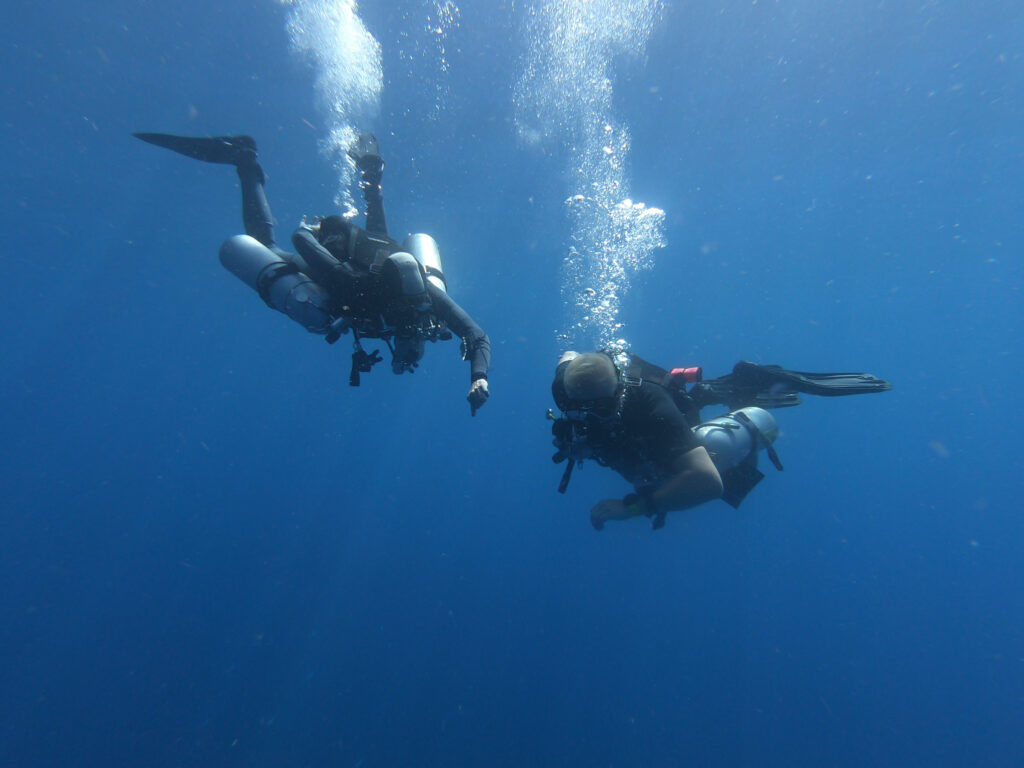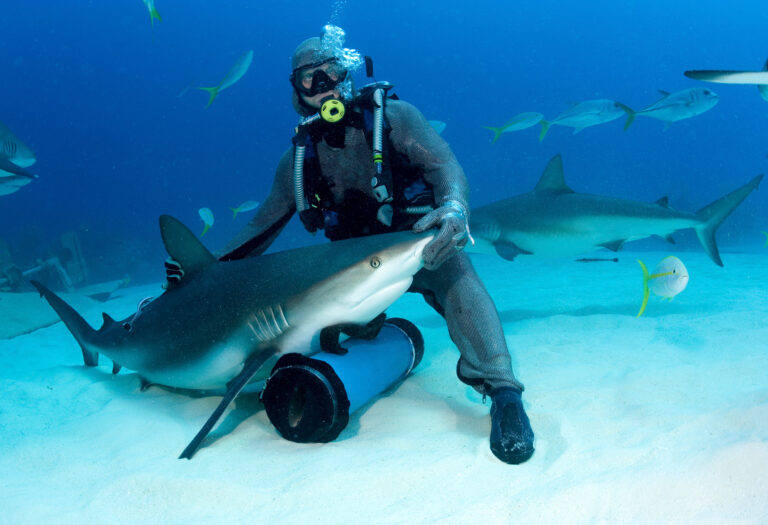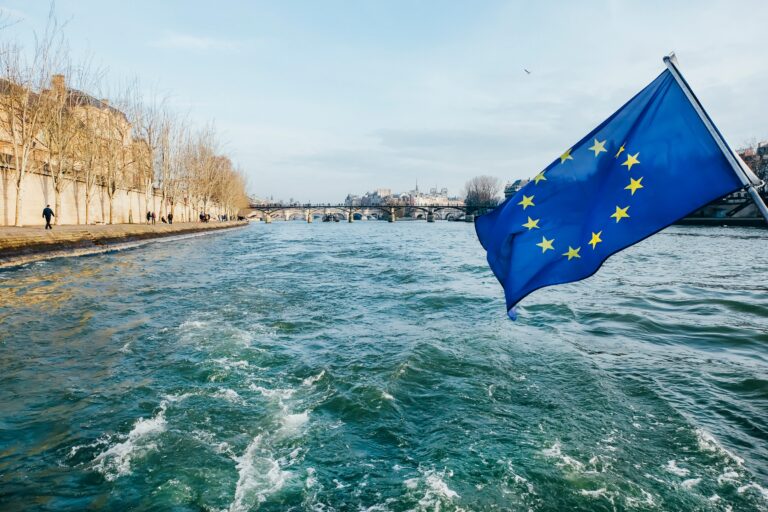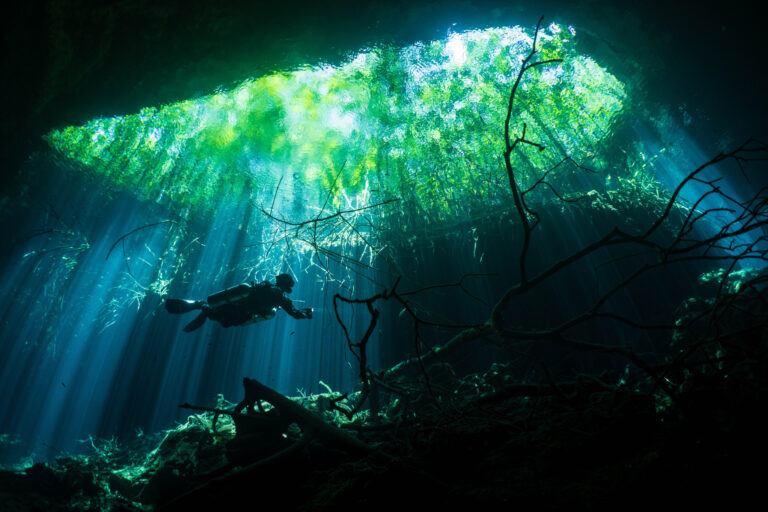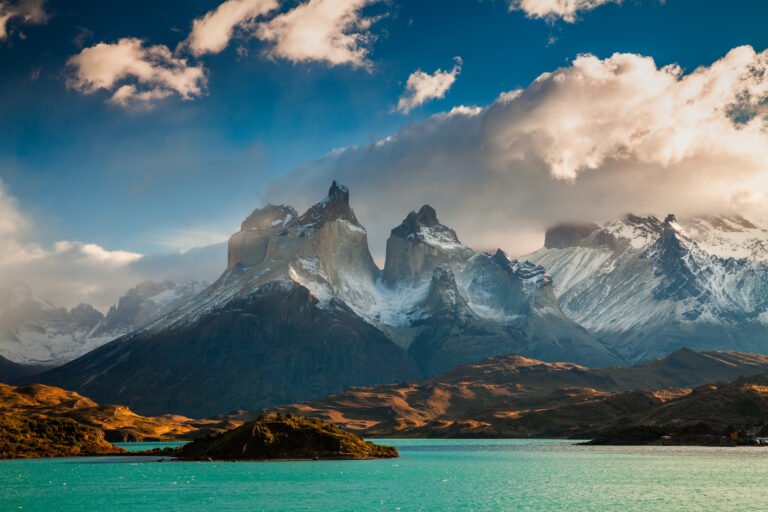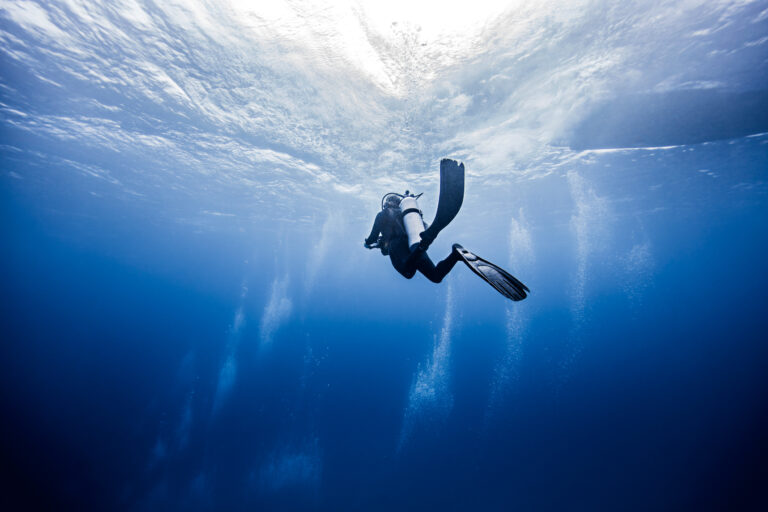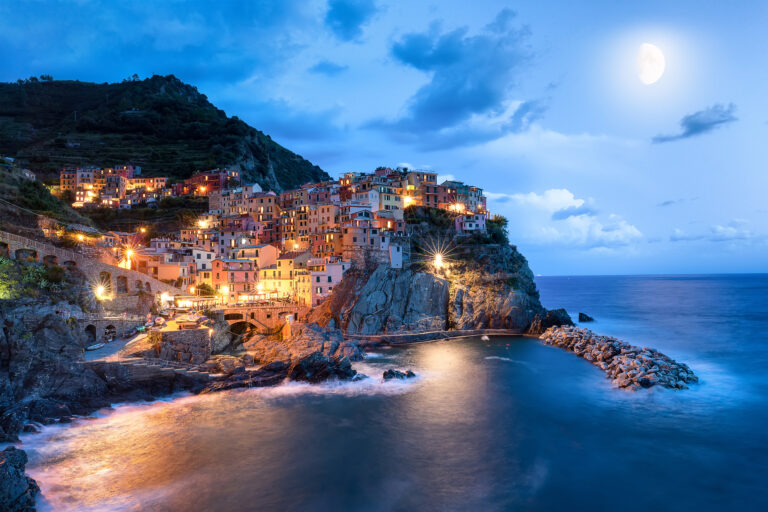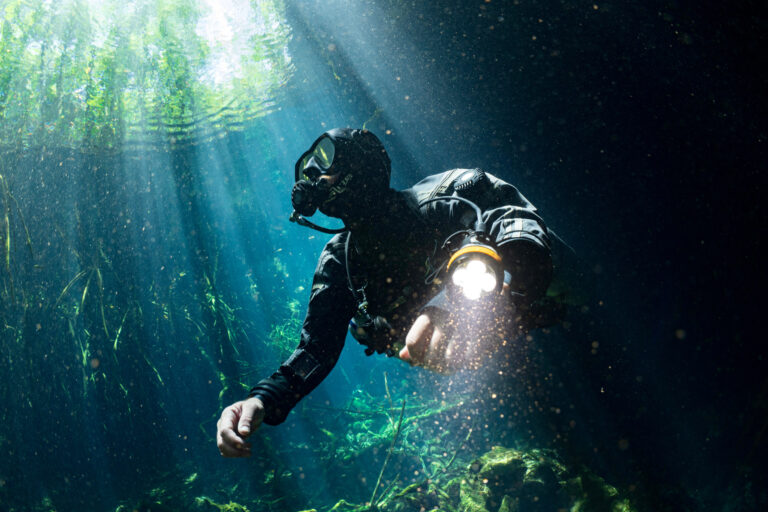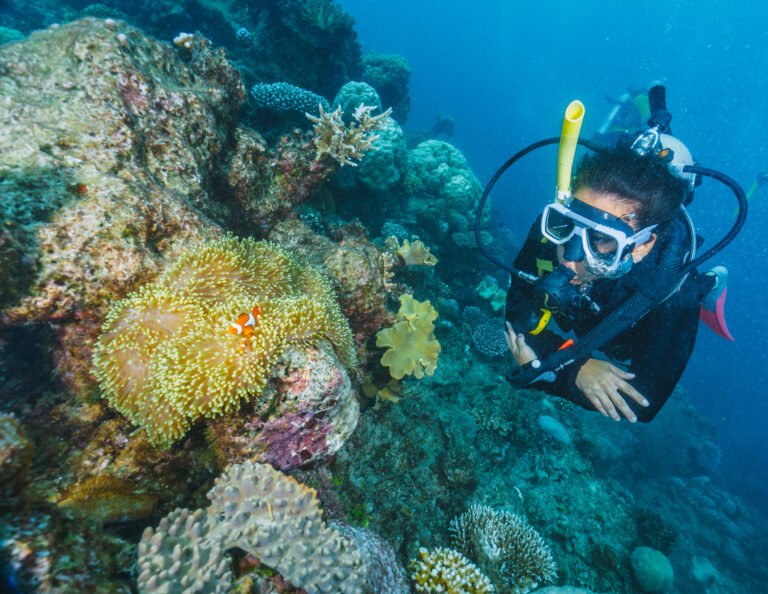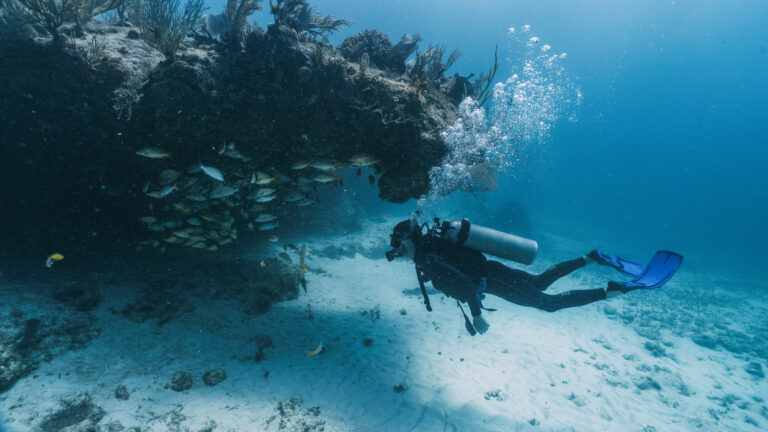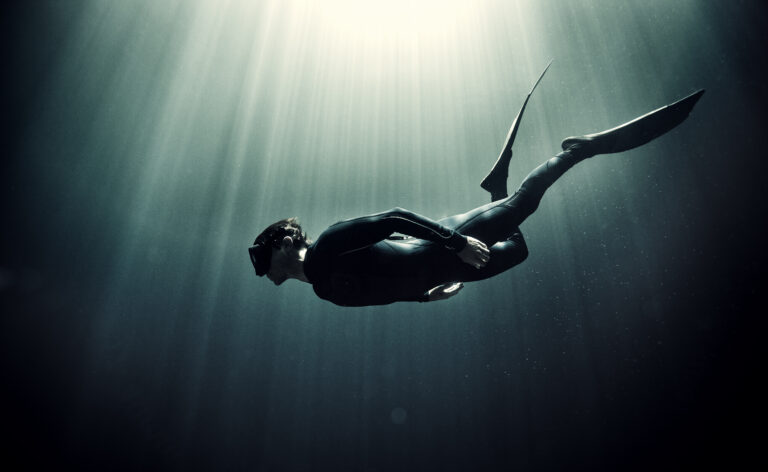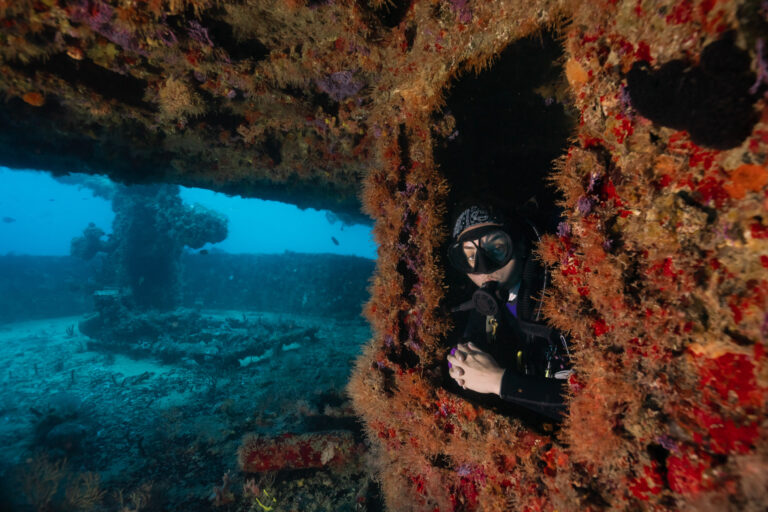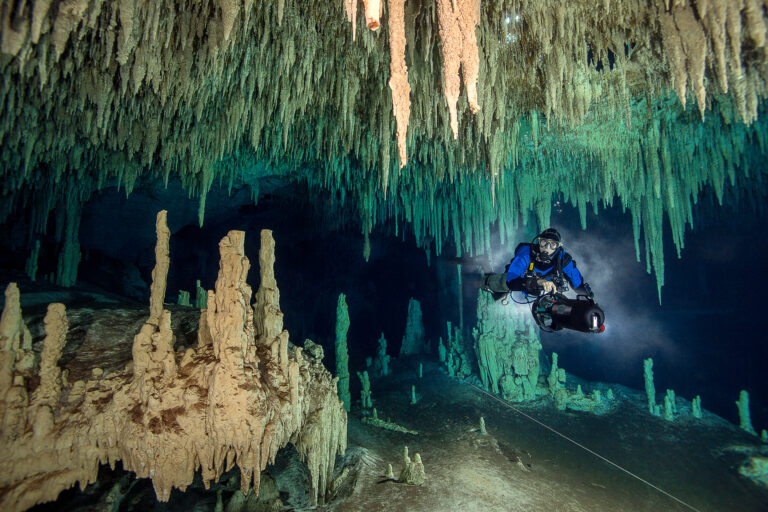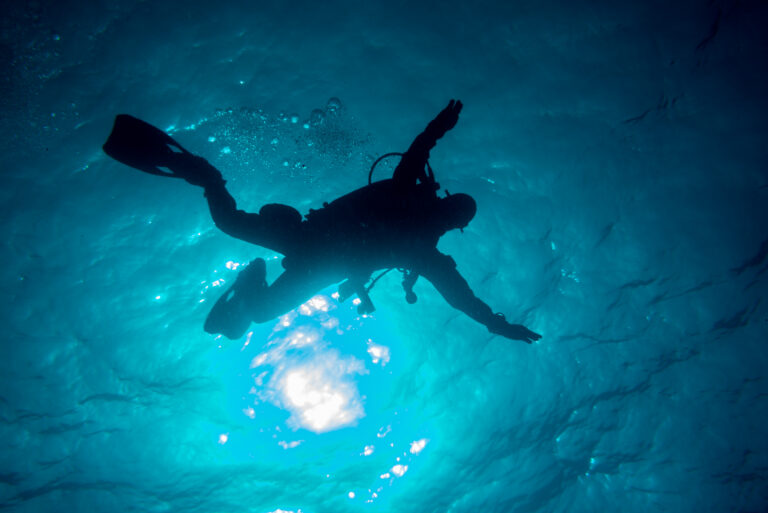SCUBA DIVERS’ TRAVEL GUIDE TO Russia
If you are looking for a scuba diving adventure that will challenge you and reward you with unforgettable sights, Russia is the destination for you. Russia is a vast country that offers diverse diving opportunities, from the warm and lively Black Sea to the cold and mysterious Baikal Lake. You will be amazed by the variety of marine life, wrecks, caves, and ice formations that await you in the Russian waters.
Russia is not a typical diving destination, but that makes it even more appealing for those who seek something different and unique. You will be able to explore the underwater secrets of the deep blue Pacific Ocean, where you can encounter whales, seals, sharks, and rays. You will also be able to dive into the history and culture of Russia, as you visit the underwater museum of Soviet leaders in the Black Sea or the ancient wooden ships in the Baikal Lake.
Russia is a scuba diving paradise for those who love challenges and discoveries. You will need to be well prepared and equipped for the conditions, but the rewards will be worth it. Russia will surprise you with its beauty and diversity, both above and below the water.
LOCATION AND GEOGRAPHY
Russia, the world’s largest country, spans Eastern Europe and Northern Asia, offering a vast and diverse range of scuba diving experiences. From the icy waters of the Arctic Ocean to the temperate Black Sea, Russia’s extensive coastline encompasses several seas, including the Baltic, Barents, Okhotsk, and the Sea of Japan. The inland freshwater bodies, like Lake Baikal in Siberia, the world’s deepest and oldest lake, provide unique diving opportunities to explore rifts, underwater flora, and endemic species. The Russian Far East presents remote and pristine dive sites near the Kamchatka Peninsula and the Kuril Islands, where volcanic activity creates an extraordinary underwater landscape. Divers in Russia can experience dramatic drop-offs, shipwrecks from different eras, and a chance to encounter marine life that ranges from the elusive beluga whale in the White Sea to the vibrant soft corals and kelp forests of the Pacific. The geographic diversity of Russia’s dive sites means that while some are accessible only to the most adventurous divers willing to brave extreme conditions, others offer more temperate and tranquil dives, albeit with the common thread of Russia’s vast and enigmatic underwater world.
VISA AND ENTRY REQUIREMENTS
Before embarking on a scuba diving adventure in Russia’s vast and diverse underwater landscapes, it is essential to ensure that your travel documents are in order. Most foreign travelers will require a visa to enter the Russian Federation. To obtain a tourist visa, you must present a valid passport, which should have at least two blank pages and be valid for six months beyond your planned departure date from Russia. Additionally, you will need an invitation letter, often arranged through your travel agency or hotel, and a completed visa application form, which can be found on the official website of the Russian consulate or embassy in your country. Visa processing times vary, so it is advisable to apply well in advance of your trip. Some nationalities may be eligible for an e-visa or visa on arrival, but it’s crucial to check the latest information from official sources as visa policies can change. Remember to also register your visa within seven days of arrival in Russia, a service usually provided by your hotel or host. Failure to comply with Russia’s visa and entry requirements can result in fines, detention, and deportation, so thorough preparation is key to a hassle-free diving experience in Russia’s unique waters.
GETTING TO Russia
Traveling to Russia for scuba diving adventures offers a unique experience, as the country boasts a vast array of dive sites ranging from the icy waters of Lake Baikal to the shipwrecks in the Black Sea. International visitors typically arrive by air, landing at major airports such as Sheremetyevo International Airport in Moscow or Pulkovo Airport in Saint Petersburg. From these hubs, connecting flights, trains, or even long-distance buses can take you closer to your diving destination. It’s important to note that Russia requires most travelers to obtain a visa before arrival, so be sure to apply well in advance and have all necessary documentation ready. Once in the country, local dive shops or tour operators can often assist with the final leg of your journey, providing transport to the dive sites or arranging for accommodations and equipment rentals. Remember to pack appropriate thermal protection for cold-water dives and to familiarize yourself with any local regulations or conservation efforts to ensure a safe and respectful diving experience in Russia’s unique underwater environments.
BEST TIME TO DIVE
The best time to scuba dive in Russia largely depends on the specific region and the type of diving experience you’re seeking. For the adventurous diver looking to explore the frigid but fascinating waters of the White Sea, the brief Arctic summer from June to August offers the most accessible conditions, with the chance to witness a unique underwater world beneath the midnight sun. In contrast, the Black Sea coast near Crimea presents a milder climate and a longer diving season, typically from May to October, with September being ideal for warmer water and better visibility. Lake Baikal, a jewel among diving destinations in Russia, is renowned for its crystal-clear ice diving conditions and is best visited in March when the ice is thickest and visibility can exceed 30 meters. Regardless of the location, divers should be prepared for the variable and often challenging conditions that come with the expansive and diverse underwater landscapes of Russia.
ACCOMMODATION OPTIONS
Accommodation options for scuba divers in Russia vary widely, catering to a range of preferences and budgets. In the frigid waters of the White Sea and Lake Baikal, divers can find comfort in cozy wooden lodges or rustic cabins that offer a warm retreat after a day beneath the waves. These accommodations often provide essential amenities like drying rooms for wetsuits and secure storage for gear. For those exploring the Black Sea coast, a selection of seaside resorts and guesthouses in cities like Anapa or Gelendzhik offer convenient access to dive shops and boat charters. In the Far East, near Vladivostok, divers can opt for more upscale hotels or boutique inns that arrange dive excursions to the fascinating underwater world of the Sea of Japan. Regardless of the location, it’s advisable to book accommodations well in advance, especially during peak diving seasons, to ensure a comfortable and hassle-free diving adventure in Russia’s unique aquatic landscapes.
DIVE OPERATORS AND DIVE SHOPS
In the vast and diverse expanse of Russia, dive operators and dive shops are as varied as the country’s landscapes, offering a unique window into the underwater world of the world’s largest nation. From the hauntingly beautiful shipwrecks in the cold waters of the White Sea to the surprisingly vibrant marine life in the far-eastern Primorye region, Russian dive shops cater to a range of experiences, providing specialized equipment suited for the often-challenging conditions. Inland, the mysterious freshwater lakes and rivers, such as Lake Baikal, the world’s deepest and oldest freshwater lake, offer unique diving opportunities that are facilitated by local dive operators with expertise in ice diving and altitude diving. These operators are well-versed in the necessary safety protocols and can provide the required thermal protection gear. It’s essential to choose a reputable dive shop, as they not only offer guided dives and PADI-certified courses but also ensure a safe and environmentally responsible diving experience. Language can be a barrier, so it’s advisable to confirm that English-speaking guides are available. With the right dive operator, the enigmatic underwater realms of Russia can unfold for the adventurous diver, revealing a side of the country that few get to witness.
TRANSPORTATION WITHIN Russia
Transportation within Russia, the world’s largest country, can vary greatly depending on your scuba diving destination. For those looking to explore the remote, pristine waters of Lake Baikal in Siberia or the shipwrecks in the White Sea, domestic flights are the most efficient way to cover the vast distances, with local airlines connecting major cities to smaller regional hubs. Once you’ve arrived, you may need to arrange for a car rental or utilize local buses and trains to reach the dive sites, as public transport options can be limited in more secluded areas. In coastal regions like the Black Sea and the Far East, you might find that ferries and private boats are also available to transport you to various islands or remote peninsulas. Always plan your transportation well in advance, as services can be less frequent and require early booking, especially during peak tourist seasons or in less accessible regions. For a truly unique experience, consider the Trans-Siberian Railway for a scenic journey across the country, though you’ll need to arrange for local transport from the train stations to your final diving destinations.
CURRENCY AND PAYMENT METHODS
When traveling to Russia for scuba diving adventures, it’s important to be aware of the local currency and payment methods. The Russian Ruble (RUB) is the official currency, and it’s advisable to have some cash on hand for smaller transactions, such as tips or purchases at remote dive sites where electronic payments may not be accepted. Credit cards are widely accepted in cities and tourist areas, with Visa and MasterCard being the most commonly used. However, American Express and other cards might not be as readily accepted. It’s also worth noting that some banks may charge additional fees for international transactions, so it’s wise to inform your bank of your travel plans to avoid any card issues. ATMs are available in urban areas and near tourist hotspots, but can be scarce in off-the-beaten-path diving locations. Always ensure you have a backup payment method and keep your currency exchange receipts, as they may be required if you wish to convert Rubles back to your home currency upon departure.
LANGUAGE AND COMMUNICATION
When embarking on a scuba diving adventure in Russia, it is important to consider the language and communication nuances that may impact your experience. Russian is the official language, and while English proficiency is growing, especially among the younger population and in major cities, it is not widely spoken in more remote diving locations or by older generations. Familiarizing yourself with basic Russian phrases, particularly diving-related terminology, can greatly enhance your interactions with local dive operators, boat crews, and fellow divers. It is also advisable to carry a waterproof Russian-English phrasebook or have a translation app readily available on your mobile device. In areas heavily frequented by international tourists, such as the Black Sea coast or Lake Baikal, you may find dive shops with English-speaking staff, but this should not be presumed. Clear hand signals, universally recognized in the diving community, remain an essential form of underwater communication, but ensuring you understand any specific or local variations during your pre-dive briefings will contribute to a safer and more enjoyable dive experience in Russia’s captivating underwater realms.
LOCAL CULTURE AND ATTRACTIONS
Russia, with its vast and diverse landscapes, offers a unique blend of cultural experiences and attractions that complement the thrill of scuba diving in its frigid waters. Beyond the allure of exploring underwater wonders such as the submerged trees of Lake Baikal or the shipwrecks in the Black Sea, divers can immerse themselves in the rich tapestry of Russian culture. From the opulent palaces and museums of St. Petersburg, echoing the grandeur of the Tsars, to the iconic onion domes of Moscow’s Red Square, the country’s history is palpable. Local cuisine, with specialties like borscht and pelmeni, provides a hearty end to a day of diving. Traditional folk music and dance, vibrant festivals, and the warm hospitality of the Russian people add to the charm of the destination. Whether strolling through historic towns or engaging with artisans at local markets, visitors will find that Russia’s cultural heritage is as deep and captivating as its underwater treasures.
CULTURAL ETIQUETTE AND TIPS
When scuba diving in Russia, it is essential to approach the experience with a respectful understanding of local customs and etiquette. Russian culture places a high value on courtesy and formality, so polite behavior and modest dress are appreciated, especially in rural areas or when interacting with older generations. It is customary to remove your shoes when entering someone’s home or certain indoor facilities, so be prepared for this practice. When diving, ensure that you respect the underwater environment, as many Russians are proud of their natural heritage and expect visitors to treat it with care. It’s also a good idea to learn a few basic Russian phrases, as English may not be widely spoken, especially in remote diving locations. Always greet your diving guides and local hosts with a firm handshake and direct eye contact, which are seen as signs of sincerity and trustworthiness in Russian culture. Lastly, be punctual for your diving excursions and any arranged meetings, as timeliness is taken seriously. By showing respect for Russian traditions and social norms, you’ll enrich your diving adventure and foster positive interactions with your hosts.
LOCAL LAWS AND REGULATIONS RELEVANT TO TOURISTS
When planning a scuba diving trip to Russia, it is crucial to familiarize yourself with the local laws and regulations to ensure a safe and lawful experience. Diving activities in Russia are regulated by the Russian Federation’s safety standards, and all divers must be certified by a recognized diving organization. It is mandatory to obtain a diving permit from local authorities before exploring certain sites, especially those that are within protected marine areas or close to military and strategic facilities, where diving may be restricted or prohibited. Tourists should also be aware that some regions may require special permissions due to environmental or cultural significance. Additionally, the collection of any biological or historical artifacts is strictly regulated, and in many cases, prohibited. It is advisable to engage with local, certified dive operators who are up-to-date with the latest regulations and can provide guidance on the permitted dive sites, as well as assist with the necessary paperwork. Always carry identification and diver certification cards during diving excursions, as spot checks are possible. Lastly, be mindful of the seasonal restrictions that may affect certain areas, particularly in environmentally sensitive regions such as the Black Sea and the Arctic waters, where protection of marine life is taken very seriously.
SAFETY TIPS AND EMERGENCY CONTACTS
When diving in Russia’s diverse underwater landscapes, safety must be your paramount concern. Due to the country’s vastness and varying climates, it’s essential to be prepared for both cold-water conditions in regions like Lake Baikal and the White Sea, and more temperate waters in the Black Sea. Always dive within your certification limits, use appropriate thermal protection, and ensure your equipment is suitable for the environment. Familiarize yourself with local dive laws and regulations, as they can differ from other regions. It’s crucial to have a dive plan, including a check on weather conditions and knowledge of the nearest decompression chambers, which are often located in larger cities or naval facilities. Always dive with a buddy and maintain clear communication throughout the dive. In case of an emergency, have the contact information for the local coast guard and emergency services programmed into your phone or dive computer. The Russian emergency number is 112, which is the universal emergency number within the European Union and is also available in Russia. Additionally, ensure that you have access to DAN (Divers Alert Network) or other dive insurance emergency hotlines, which can provide immediate assistance and advice in multiple languages, including English. Remember, thorough preparation and adherence to safety protocols are the keys to an enjoyable and safe diving experience in Russia.
HEALTH AND TRAVEL INSURANCE
When planning a scuba diving trip to Russia, it is crucial to prioritize your health and ensure you have comprehensive travel insurance that covers diving activities. The remote nature of some Russian dive sites, such as those in Lake Baikal or the White Sea, means access to medical facilities may be limited, and evacuation in the event of an emergency can be both complicated and costly. Make sure your insurance policy includes coverage for hyperbaric treatment, as the nearest decompression chamber may be a significant distance from the dive location. Additionally, consider coverage for trip cancellation, lost or damaged gear, and any non-diving related medical emergencies. Given the cold water temperatures, divers should be in good physical condition and have experience with or training in cold-water diving. Always check with your insurance provider for any exclusions, such as extreme depths or specific activities, and ensure that your policy is valid for the duration of your stay in Russia. Remember, prevention is better than cure, so thorough preparation and a suitable insurance plan are key to a safe and enjoyable scuba diving adventure in Russia’s unique underwater landscapes.

